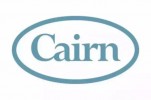Filter interviews by
Petrofac Interview Questions and Answers
39 Interview questions
I would join your team to contribute my skills in QA QC, ensuring high-quality standards and continuous improvement in processes.
I have a strong background in quality assurance methodologies, which will help in identifying and mitigating risks early.
My experience with automated testing tools like Selenium can enhance the efficiency of our testing processes.
I am committed to fostering a collaborative team environme...
My goal is to contribute to the company's success by ensuring high-quality standards and continuous improvement in processes.
Implement robust QA processes to minimize defects, ensuring products meet specifications.
Collaborate with cross-functional teams to enhance communication and streamline workflows.
Utilize data-driven approaches to identify areas for improvement, such as reducing cycle times.
Stay updated with ...
Transformers are rated in kVA because it indicates the maximum amount of power that can be safely handled by the transformer.
kVA rating is used to determine the maximum load that a transformer can handle without overheating.
It takes into account both the voltage and current ratings of the transformer.
kVA rating helps in selecting the right size of transformer for a specific application.
For example, a 100 kVA trans...
MCCB stands for Molded Case Circuit Breaker.
MCCB is a type of circuit breaker that is commonly used in electrical distribution systems.
It provides protection against overcurrent and short circuit faults.
MCCBs have adjustable trip settings for different levels of current protection.
Examples of MCCB manufacturers include Schneider Electric, Siemens, and ABB.
I&C concepts refer to instrumentation and control systems used in various industries to monitor and control processes.
I&C systems involve sensors, transmitters, controllers, and final control elements.
They are used to measure variables such as temperature, pressure, flow, and level.
Control systems use feedback loops to adjust process variables and maintain desired setpoints.
Examples include PLCs, DCS, SCADA system...
Instrumentation is the science and art of measurement and control of process variables within a production or manufacturing setting.
Instrumentation involves the use of sensors, transmitters, controllers, and final control elements to monitor and regulate process variables such as temperature, pressure, flow, and level.
It plays a crucial role in ensuring the efficiency, safety, and quality of industrial processes.
E...
Quality of deliverables is crucial for successful project completion.
Ensuring accuracy and completeness of drawings and documents
Adhering to project specifications and standards
Regularly reviewing and revising deliverables to meet client requirements
Seeking feedback from stakeholders to improve quality
Using software tools effectively to enhance deliverables
Maintaining clear communication with team members for cons...
Pressure drop criteria for liquid and vapor phases are essential for accurate hydraulic calculations.
Pressure drop criteria for liquid phase typically range from 0.5-2 psi per 100 feet of pipe length.
Pressure drop criteria for vapor phase can vary depending on the specific application and design parameters.
Factors such as flow rate, pipe diameter, fluid properties, and equipment specifications must be considered w...
HAZOP stands for Hazard and Operability Study, while HAZID stands for Hazard Identification.
HAZOP is a systematic method to identify potential hazards and operability issues in a process plant.
HAZID is a process used to identify hazards in a facility or operation before they become accidents.
Both HAZOP and HAZID are important tools in risk assessment and management in engineering projects.
P, PI, PID are types of controllers used in process control to regulate the output based on the input.
P stands for Proportional controller, which adjusts the output based on the error signal.
PI stands for Proportional-Integral controller, which not only adjusts based on error signal but also integrates the error over time.
PID stands for Proportional-Integral-Derivative controller, which adjusts based on error sign...
Petrofac Interview Experiences
43 interviews found
(2 Questions)
- Q1. Name and work and who are you
- Ans.
I am a trainee at XYZ Company, currently working on various projects under the guidance of senior team members.
Trainee at XYZ Company
Working on various projects
Under the guidance of senior team members
- Q2. What about your self and about
- Ans.
I am a dedicated and hardworking individual with a passion for learning and growth.
I have a strong work ethic and am always eager to take on new challenges.
I am a quick learner and adapt well to new environments.
I am detail-oriented and strive for excellence in everything I do.
I applied via Naukri.com and was interviewed in Oct 2024. There was 1 interview round.
(2 Questions)
- Q1. Past experience
- Q2. Salary expectation
- Q1. How many valve use Hydrotesting manifolds?
- Q2. Can you read p&id and isometric?
- Q3. Which equipment use to Hydrotesting?
- Q4. How to pressure calculate to design pressure?

(4 Questions)
- Q1. Painting coating insulation fireproofing related works
- Q2. Painting work measures sqm2 Painting works following the procedure and method statement Select the paint company as per client requirements
- Q3. As per questions required company I am given to answer
- Q4. As per question required company I am given to answer

(5 Questions)
- Q1. Work experience, country name, types of work, manpower handling etc
- Q2. Punjlloyd ltd ,brouge 2 project,abudhabi
- Q3. Allkulaib int kuwait ,subiya power plant
- Q4. Dyam punjlloyd ,saudi arabia ,satrop projects
- Q5. Towell eng, oman orpic (srip extension projects)
Manpower nhandling only
Interview Preparation Tips
(2 Questions)
- Q1. WHOULD YOU JOIN WITH OUR TEAM?
- Ans.
I would join your team to contribute my skills in QA QC, ensuring high-quality standards and continuous improvement in processes.
I have a strong background in quality assurance methodologies, which will help in identifying and mitigating risks early.
My experience with automated testing tools like Selenium can enhance the efficiency of our testing processes.
I am committed to fostering a collaborative team environment, a...
- Q2. WHAT IS YOUR GOALL OF THIS COMPANY?
- Ans.
My goal is to contribute to the company's success by ensuring high-quality standards and continuous improvement in processes.
Implement robust QA processes to minimize defects, ensuring products meet specifications.
Collaborate with cross-functional teams to enhance communication and streamline workflows.
Utilize data-driven approaches to identify areas for improvement, such as reducing cycle times.
Stay updated with indus...
(2 Questions)
- Q1. Why transformer is rated in kva ?
- Ans.
Transformers are rated in kVA because it indicates the maximum amount of power that can be safely handled by the transformer.
kVA rating is used to determine the maximum load that a transformer can handle without overheating.
It takes into account both the voltage and current ratings of the transformer.
kVA rating helps in selecting the right size of transformer for a specific application.
For example, a 100 kVA transforme...
- Q2. Full form of MCCB?
- Ans.
MCCB stands for Molded Case Circuit Breaker.
MCCB is a type of circuit breaker that is commonly used in electrical distribution systems.
It provides protection against overcurrent and short circuit faults.
MCCBs have adjustable trip settings for different levels of current protection.
Examples of MCCB manufacturers include Schneider Electric, Siemens, and ABB.
I applied via Company Website and was interviewed in Jun 2023. There were 3 interview rounds.

Graph based question. Duration: 45 mins
(5 Questions)
- Q1. What are different types of sensors used in oil and gas industries?
- Ans.
Various sensors used in oil and gas industries include pressure sensors, temperature sensors, flow sensors, level sensors, and gas detectors.
Pressure sensors - used to measure pressure in pipelines and equipment.
Temperature sensors - monitor temperature levels in various processes.
Flow sensors - measure the flow rate of liquids or gases in pipelines.
Level sensors - detect the level of liquids in tanks or vessels.
Gas de...
- Q2. What is HAZOP and HAZID?
- Ans.
HAZOP stands for Hazard and Operability Study, while HAZID stands for Hazard Identification.
HAZOP is a systematic method to identify potential hazards and operability issues in a process plant.
HAZID is a process used to identify hazards in a facility or operation before they become accidents.
Both HAZOP and HAZID are important tools in risk assessment and management in engineering projects.
- Q3. What are P, PI,PID in process control?
- Ans.
P, PI, PID are types of controllers used in process control to regulate the output based on the input.
P stands for Proportional controller, which adjusts the output based on the error signal.
PI stands for Proportional-Integral controller, which not only adjusts based on error signal but also integrates the error over time.
PID stands for Proportional-Integral-Derivative controller, which adjusts based on error signal, i...
- Q4. What do you know about Digital Electronics?
- Ans.
Digital Electronics is a branch of electronics that deals with digital signals and systems.
Deals with digital signals (0s and 1s)
Involves logic gates, flip-flops, and digital circuits
Used in computers, calculators, digital watches, etc.
Binary arithmetic and Boolean algebra are fundamental concepts
- Q5. What are level sensor, flow sensor, temperature sensor?
- Ans.
Level sensor, flow sensor, and temperature sensor are devices used to measure different physical parameters in various industries.
Level sensor measures the level of a substance in a container or tank, such as liquid level sensors in water tanks.
Flow sensor measures the flow rate of a fluid, like a flow meter in a pipeline.
Temperature sensor measures the temperature of a system or environment, for example, a thermocoupl...
Interview Preparation Tips

(4 Questions)
- Q1. Saudi aramco engineering standards.
- Ans.
Saudi Aramco Engineering Standards are guidelines and specifications used in engineering projects for Saudi Aramco.
Saudi Aramco Engineering Standards cover various aspects of engineering design, materials, construction, and operation.
These standards ensure consistency, quality, and safety in all engineering projects undertaken by Saudi Aramco.
Examples of areas covered by the standards include piping design, electrical ...
- Q2. Design related discussions
- Q3. Safe practices in design
- Ans.
Safe practices in design involve considering potential hazards, following regulations, and prioritizing safety.
Identify potential hazards in the design process
Follow industry regulations and standards for safety
Prioritize safety over cost or convenience
Regularly review and update safety protocols
Include safety features in the design, such as emergency shut-off valves
Consider environmental impact and sustainability in d...
- Q4. Quality of deliverables
- Ans.
Quality of deliverables is crucial for successful project completion.
Ensuring accuracy and completeness of drawings and documents
Adhering to project specifications and standards
Regularly reviewing and revising deliverables to meet client requirements
Seeking feedback from stakeholders to improve quality
Using software tools effectively to enhance deliverables
Maintaining clear communication with team members for consisten...
Interview Preparation Tips
Skills evaluated in this interview
I appeared for an interview before Jul 2021, where I was asked the following questions.
- Q1. How to work lock out relay
- Q2. Electrical code
Top trending discussions






Petrofac Interview FAQs
Some of the top questions asked at the Petrofac interview -
The duration of Petrofac interview process can vary, but typically it takes about less than 2 weeks to complete.
Tell us how to improve this page.
Petrofac Interviews By Designations
- Petrofac Construction Management Interview Questions
- Petrofac Graduate Engineer Trainee (Get) Interview Questions
- Petrofac Workman/Foreman/Technician Interview Questions
- Petrofac Designer Interview Questions
- Petrofac Graduate Engineer Interview Questions
- Petrofac Instrument Engineer Interview Questions
- Petrofac QA QC Engineer Interview Questions
- Petrofac Electrical Design Engineer Interview Questions
- Show more
Interview Questions for Popular Designations
- Senior Executive Interview Questions
- Executive Interview Questions
- Software Engineer Interview Questions
- Intern Interview Questions
- Senior Associate Interview Questions
- Senior Engineer Interview Questions
- Graduate Engineer Trainee (Get) Interview Questions
- Associate Software Engineer Interview Questions
- Show more
Overall Interview Experience Rating
based on 30 interview experiences
Difficulty level
Duration
Interview Questions from Similar Companies
Petrofac Reviews and Ratings
based on 913 reviews
Rating in categories
|
Senior Engineer
68
salaries
| ₹8 L/yr - ₹30 L/yr |
|
Principal Engineer
65
salaries
| ₹12 L/yr - ₹36 L/yr |
|
Senior Design Engineer
47
salaries
| ₹8 L/yr - ₹21 L/yr |
|
Process Engineer
31
salaries
| ₹6 L/yr - ₹22 L/yr |
|
Instrument Engineer
31
salaries
| ₹8.8 L/yr - ₹24.7 L/yr |

GAIL

Schlumberger

Saudi Aramco

Baker Hughes
- Home >
- Interviews >
- Petrofac Interview Questions













